10 things I wish I had known as a beginner gardener
if I were president, everyone would be encouraged to grow a garden
It is finished!
My 2025 garden is planted. It’s now released into the hands of the sun, the rain, the soil, and the humble watering system my mother loving installed for me this week (what a legend).
As usual, it was both easier and harder to plant than I imagined. Already my seeds have been finicky, and we had a colder spring than usual but I’m cautiously optimistic.
Sitting down and hearing the birds chirp outside my back kitchen door I feel reflective and thought it could be fun to do a post listing everything I would tell myself if I was starting over again for the first time. I am not an experienced or expert gardener. I’m a gardening second grader, but I still know more than I did three years ago, so this is what I’d tell myself if I were starting over again.
1. You can totally do it.
Like starting anything new, it feels so overwhelming and impossible to start. It’s why it took me several years of wanting to garden before I actually did the thing. Now that I'm here, I wish I had just started right away because I’d know so much more, but sometimes you can’t rush these things. I just wish I could go back and give my former self a shot of confidence to just start. My own garden started with planting a solitary rose bush. It gave me the confidence to keep going.
2. Start small, add a little every year.
The best garden to start with is the one you can realistically maintain. It’s so easy to bite off more than you can chew in the beginning. There are so many gorgeous plants, rare and unique vegetables, flowers and herbs it’s tempting to “add all to cart”. But your life isn’t HGTV. It’s easier to care for a bigger garden when you add a little to it every year, than it is to plant everything at once.
3. Start with perennials.
Perennials! Plants that come back year after year with little maintenance, bigger and better every time. The thing with most perennials (in my experience) is that even if you plant more mature ones from the garden center, they take a year or so to get established. But once they’re in there and live through their first winter, you’re done. My favorites:
rosemary
thyme
mint (in a pot!)
echinacea/cone flowers
catnip
oregano
bee balm
sage
bee blossom/gaura
lavender
aster
fruit bushes (raspberry, blueberry, blackberry)
yarrow
daisy
black eye susans
hellebores
Just to name a few. Once you get these kinds of plants in the ground, you’ll have a good foundation that’s really easy to maintain and keep coming back with gusto every year.
These are all very affordable to grow from seedlings. You just need patience.
4. When you’re in it for the process, not the end result, you can’t fail.
Every gardener you know has killed more seeds and plants than they’ve grown. I didn’t used to believe that when my more experienced friends would say this to me, but now I understand. I’ve failed so much more than I thought I would. I’ve learned more from my failures than my successes. I’ve learned about soil acidity and composition, I’ve learned about sunlight, and water absorption, and bugs and birds and SO much more. That being said, the things I’ve successfully grown have been a pure delight, and I spend each year chasing that high.
5. Go on lots of hikes, see what organically wants to grow in your region.
When I first started I had all these dreams of growing things like poppies and white sage which grow prolifically in California. I tried starting the seeds but they were incredibly hard to keep alive in my Tennessee soil. They weren’t happy, and took up a lot of my time working the land into something it was never intended to be. Work with your soil, become an expert in your area. Not only will it be easier as the gardener, but you’ll make all the local bugs, birds and animals so happy! Nothing gives me as much joy as seeing bees buzz around my native plants knowing I got to provide them with food they’re adapted to already eating.
6. Compost, compost, compost!
If I could only do two things my first year gardening, it’d be to start a compost system and plant perennials. There are tons of different ways to compost, but getting started and learning to appreciate the nutrients and life in plants after they’ve passed their conventional “usefulness” has changed my whole perspective on life. I know that sounds dramatic, but I mean every word. I have this compost tumbler, but I also have a ditch on the other side of my garden against the fence that I’ve been filling with yard waste. ALSO, I’ve been learning about in-ground composting from Beccalynne here on Substack has been really eye-opening and I’m giving it a try.
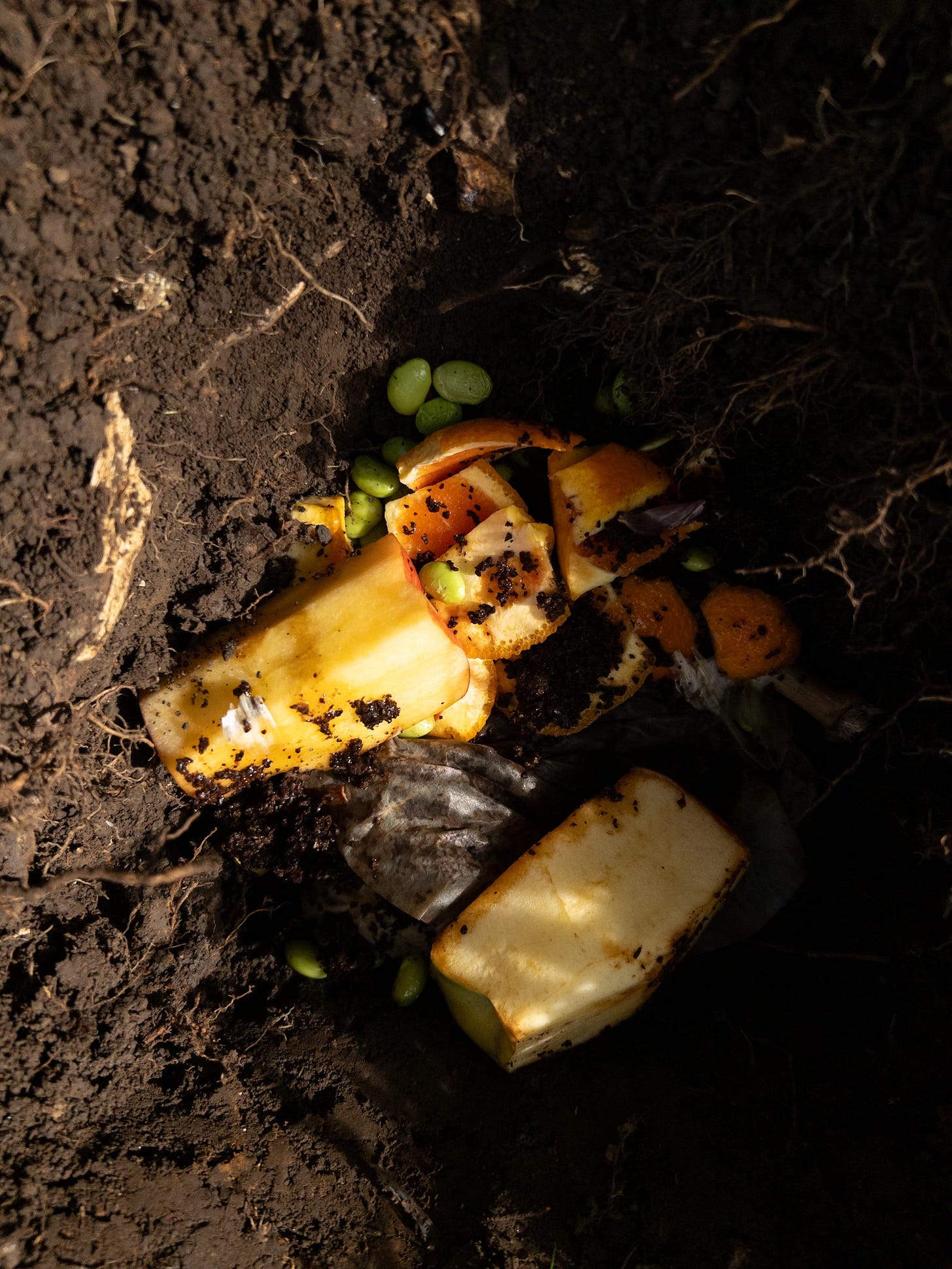
7. Self-seeding plants are fun.
One of my favorite things every spring, is watching and seeing what remnants come up from last year’s garden. I like planting cosmos flowers, tomatoes and dill for this reason. It feels like magic when you see the sprouts come up from seeds that have laid dormant all winter long. Especially when it comes to flowers, your garden will work for you when it comes to self-seeding plants.
8. Make a note of when you planted things and how to reference the next year.
Even if it’s just on your phone or on a scrap of paper you keep in the junk drawer with “dill— March 15/ pots” it’ll help you the next year. You can make adjustments to figure out your optimal planting window.
9. Get involved in the gardening community.
If you’re craving community and connection with the area you live in, START GARDENING. It’s such an organic way to learn and meet people. People are so generous with their resources and knowledge. Go to gardening work shops at your community centers, or nature centers, go on plant walks, sign up for workshops at arboretums or learn about herbalism. The people in this community are some of my favorite humans I’ve ever met. They care about the land, ecology and beauty. Gardening shouldn’t be a solo activity in my opinion!
10. Don’t buy into the gardening industrial complex!
Like all hobbies, gardening is basically a universe where you can spend tens or even hundreds of thousands of dollars easily. Your phone will start sending you ads for gardening apparel, cute gloves, stainless steel tools and aesthetic planter pots. None of these things are “wrong” but you can’t buy your way into gardening. The biggest lie is that you need to have hundreds of dollars of kit to be a gardener. Sure there are tools that make the job easier, but if I could go back and tell my beginner self to ignore the noise around buying stuff I would. Avoid things that come in plastic— planters, bags of soil (although, sometimes needs must), don’t buy any weed killers if you want to eat anything from your yard. Humans have been growing things from the dawn of time, get creative. Think creatively about how to do things for free or cheap. Ask your neighbors if you can propagate their plants, harvest seeds from their garden at the end of growing seasons, look at the “free” section of FB Marketplace. You don’t need more stuff to begin.
I hope this helps or inspires you to get started. Happy gardening everyone!
love,
g xx

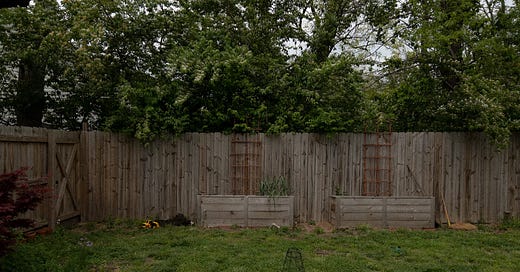



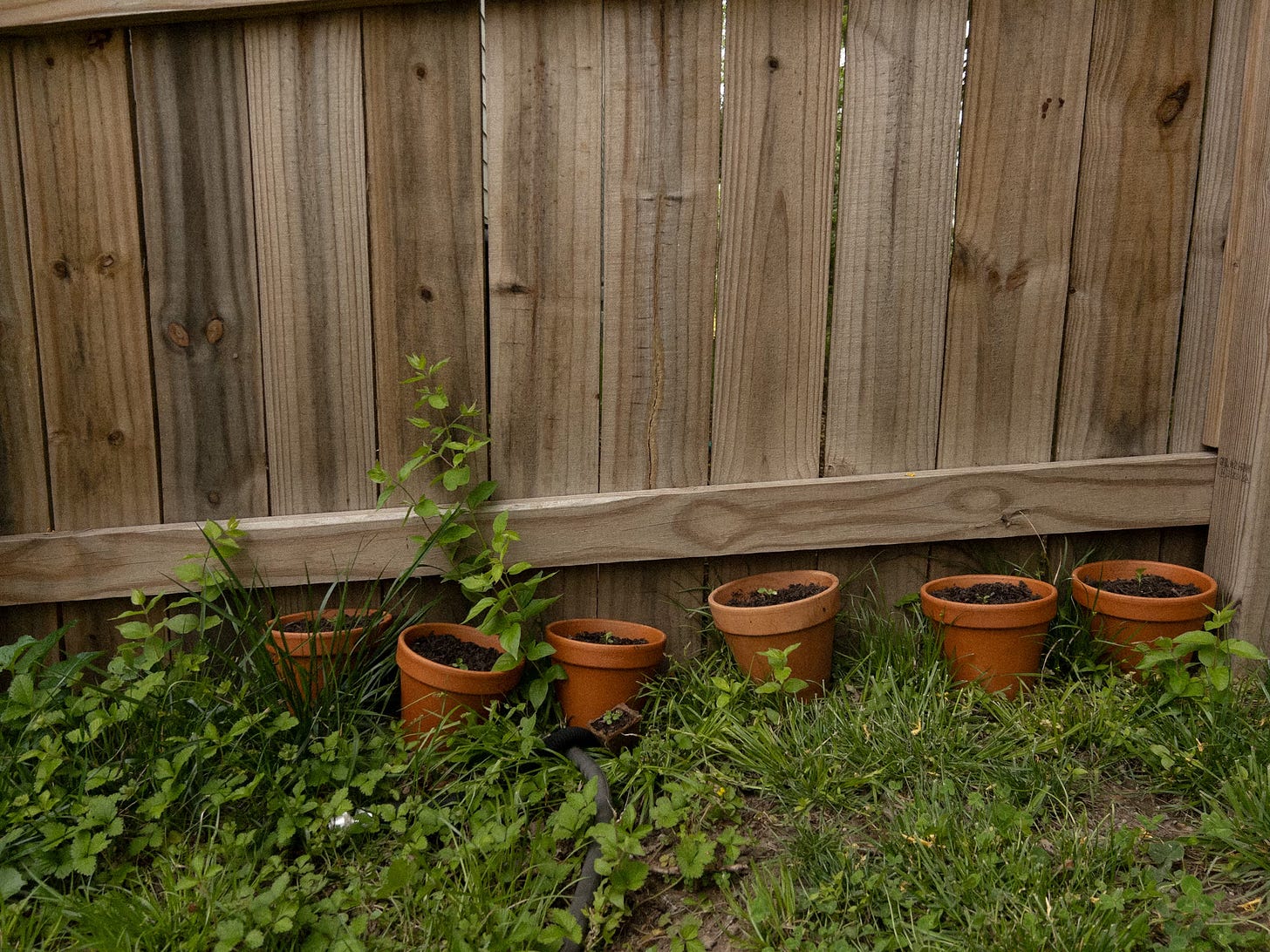
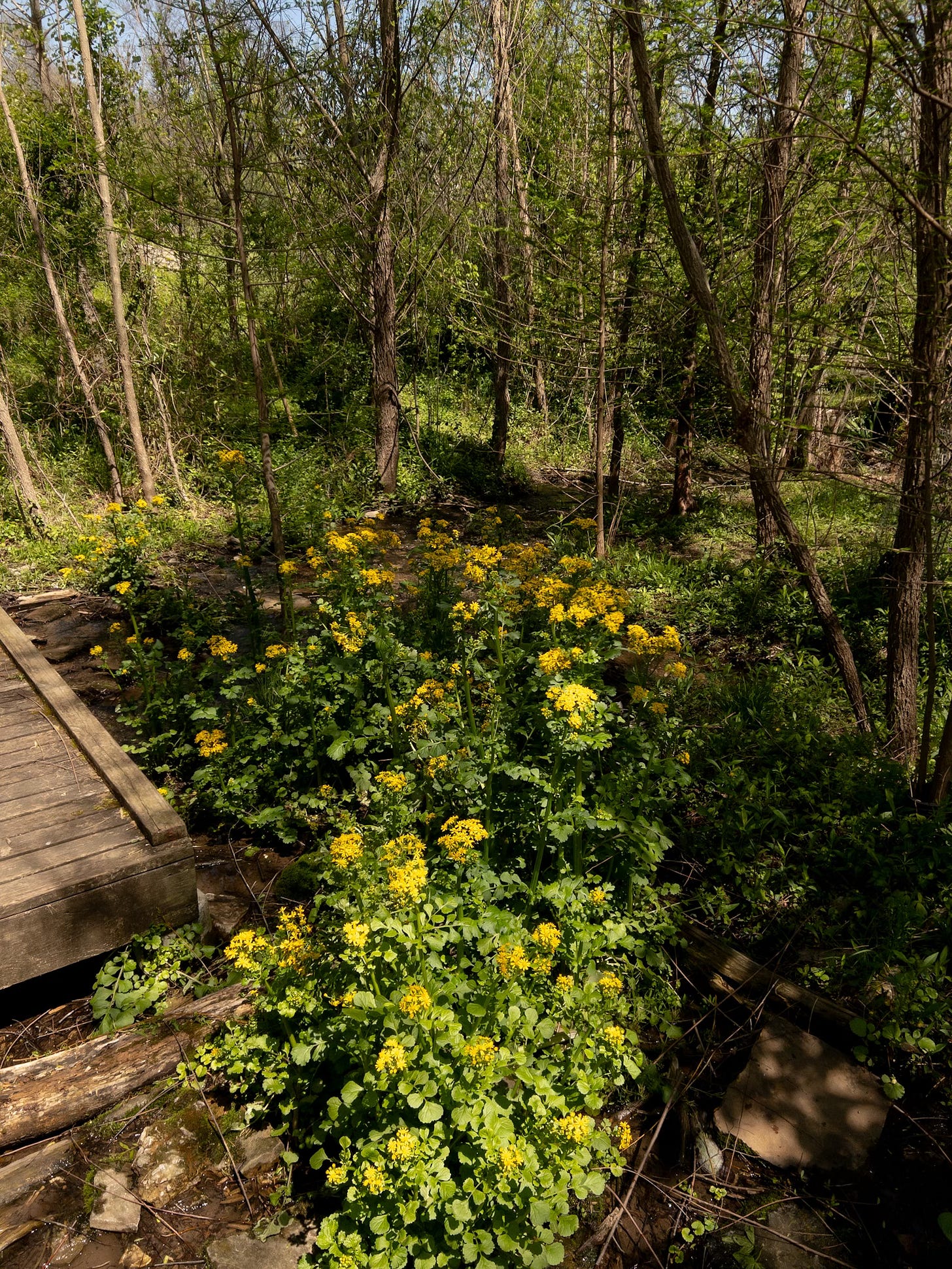
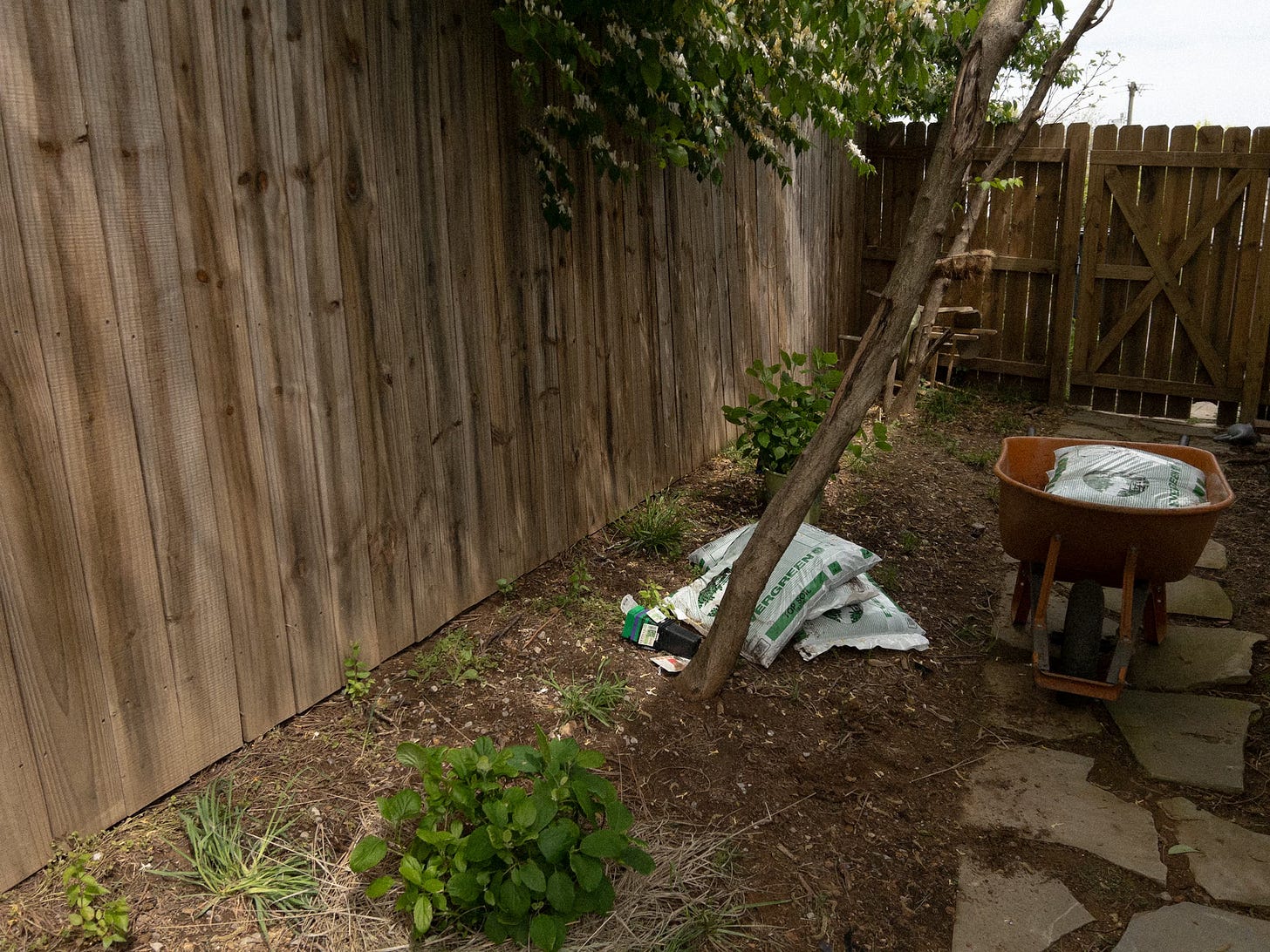
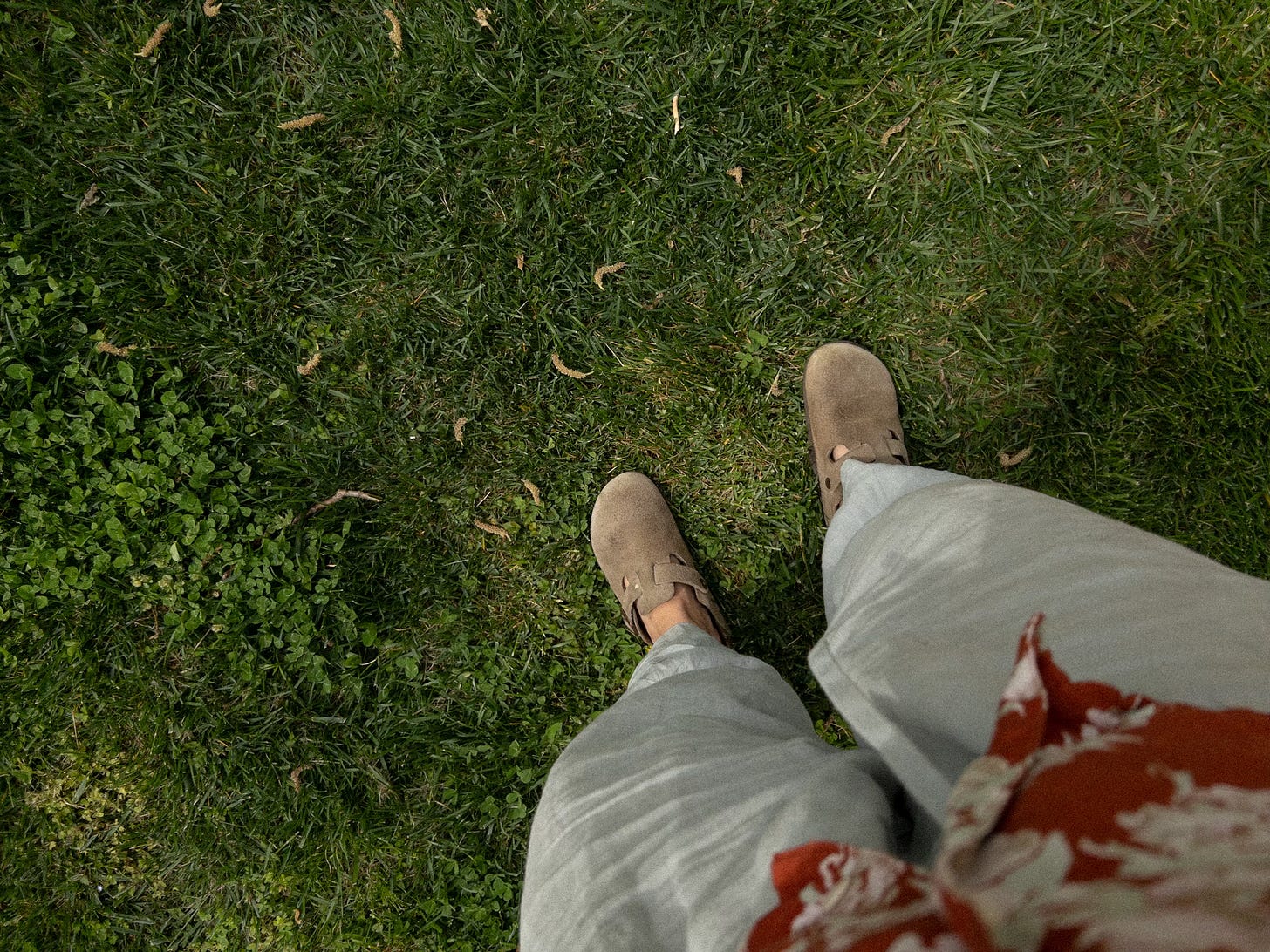
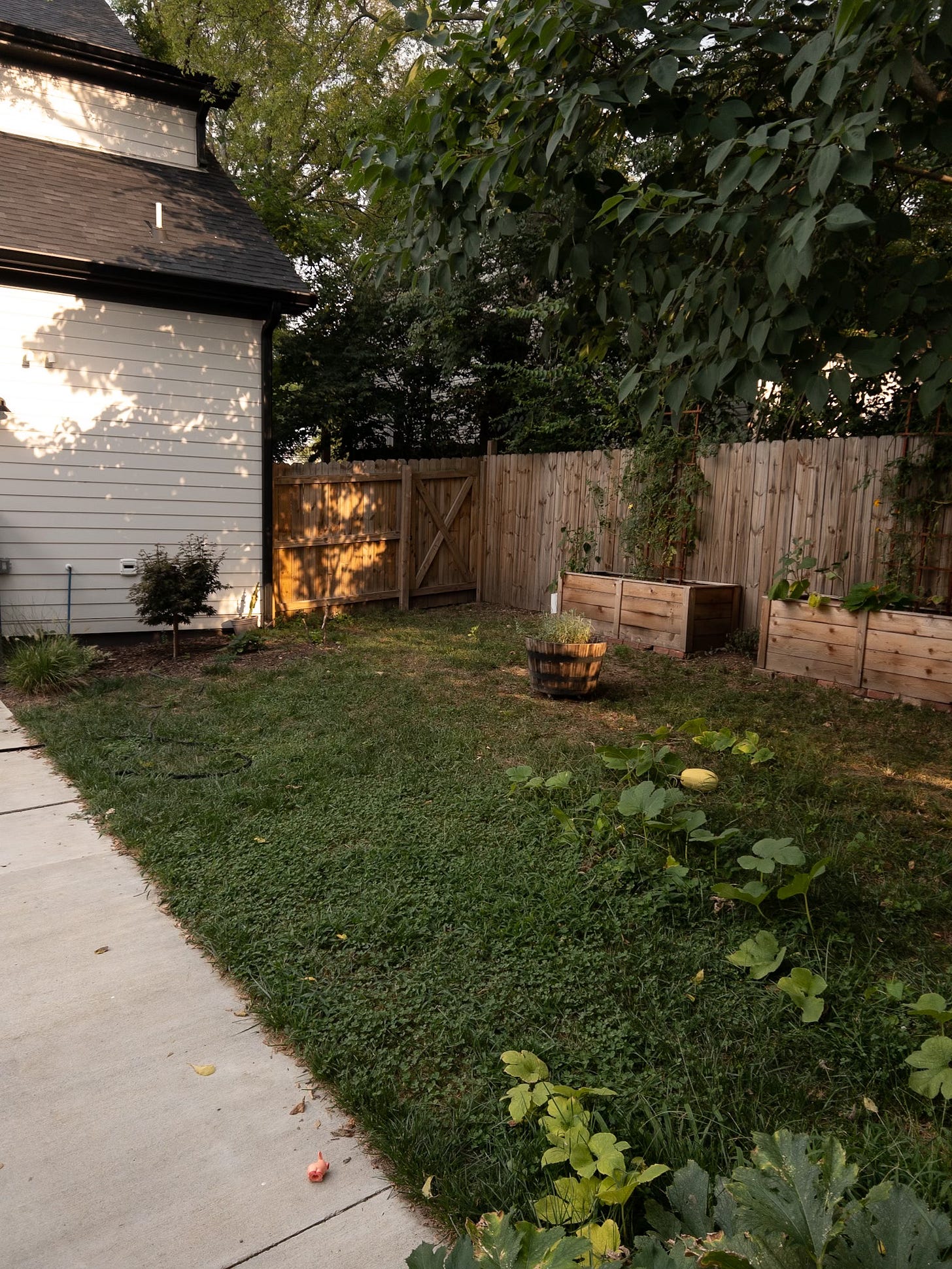
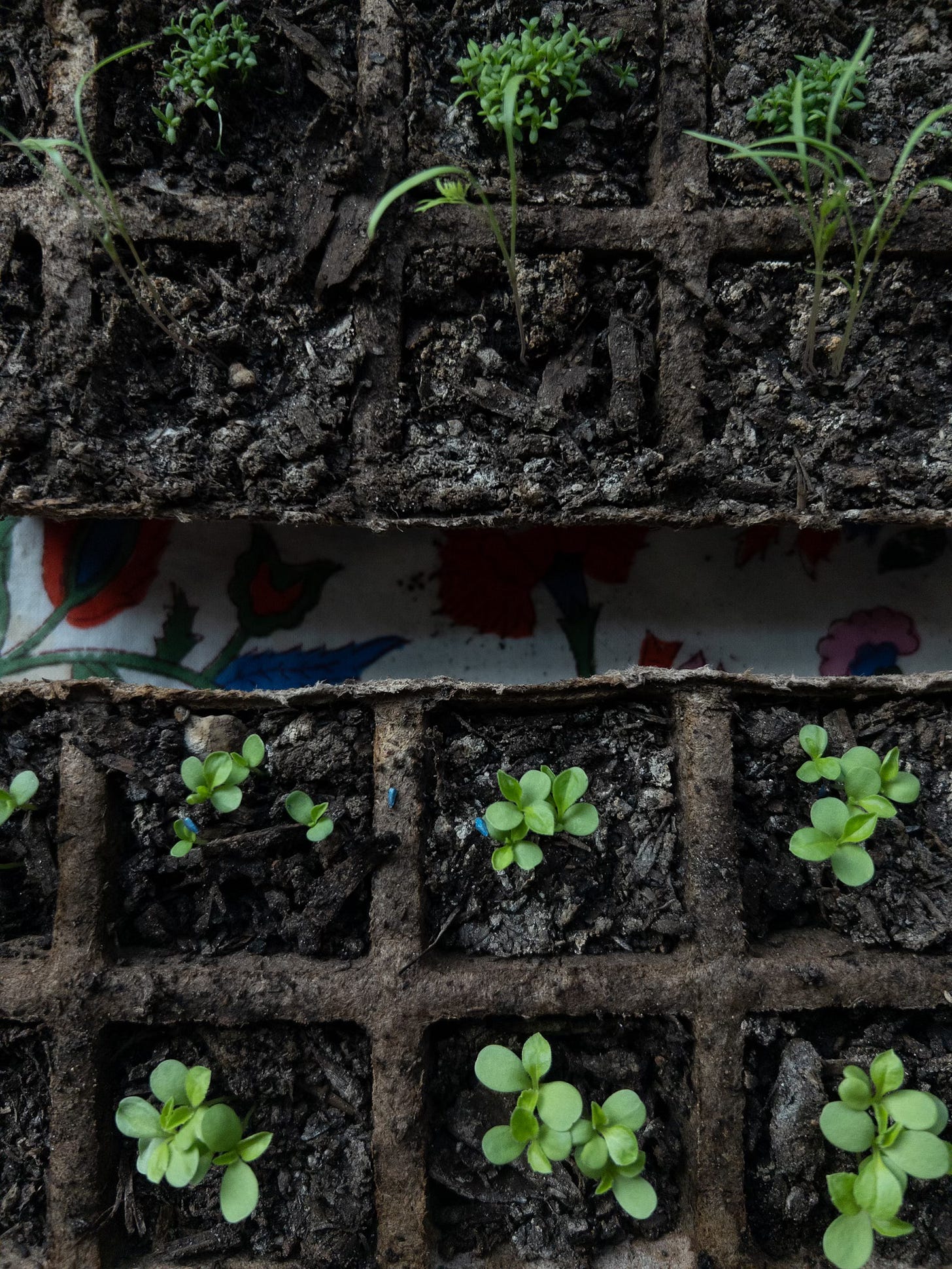
Sooooo helpful! Thank you!!! <3
I've been thinking about growing some herbs/berries this season, and this just made me want to start sooner!